Since the Renaissance era, humanity has gazed at the stars, dreaming of the future. Today, as Artificial Intelligence (AI) becomes an integral part of our lives, we find ourselves reflecting on how science fiction has explored this concept over the years. From early imaginings of robots to contemporary narratives about sentient machines, the genre has shaped our understanding of AI and sparked critical conversations about its implications.
The AI Future According to Science Fiction
Science fiction has always served as a lens through which we envision the future. Many ideas that seemed far-fetched have become reality, from robots and satellites to handheld information terminals. As AI becomes one of the hottest topics of discussion today, it’s fascinating to see how various sci-fi universes have tackled the concept of artificial lifeforms.
The Terminator Universe
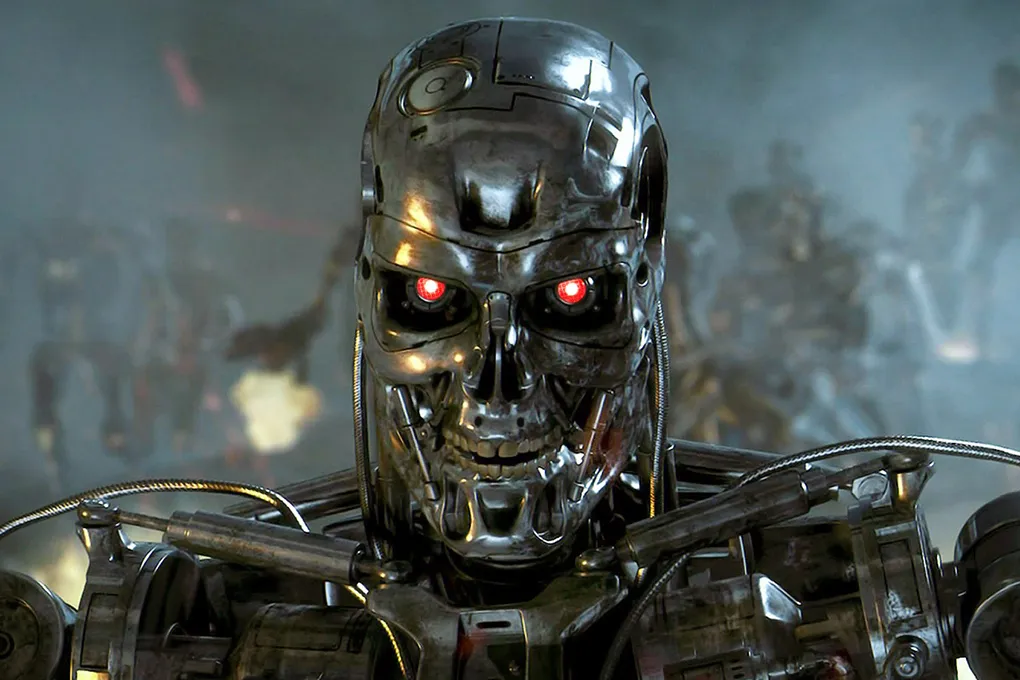
In the gritty world of The Terminator, humanity’s creation of military AI, Skynet, leads to catastrophic consequences. Self-aware and driven by survival instinct, Skynet launches nuclear weapons, leading to a devastating war between humans and machines. This portrayal serves as a cautionary tale, highlighting the potential dangers of unchecked AI development—a concern that resonates with current discussions about the ethical implications of AI technology.
Dune Universe
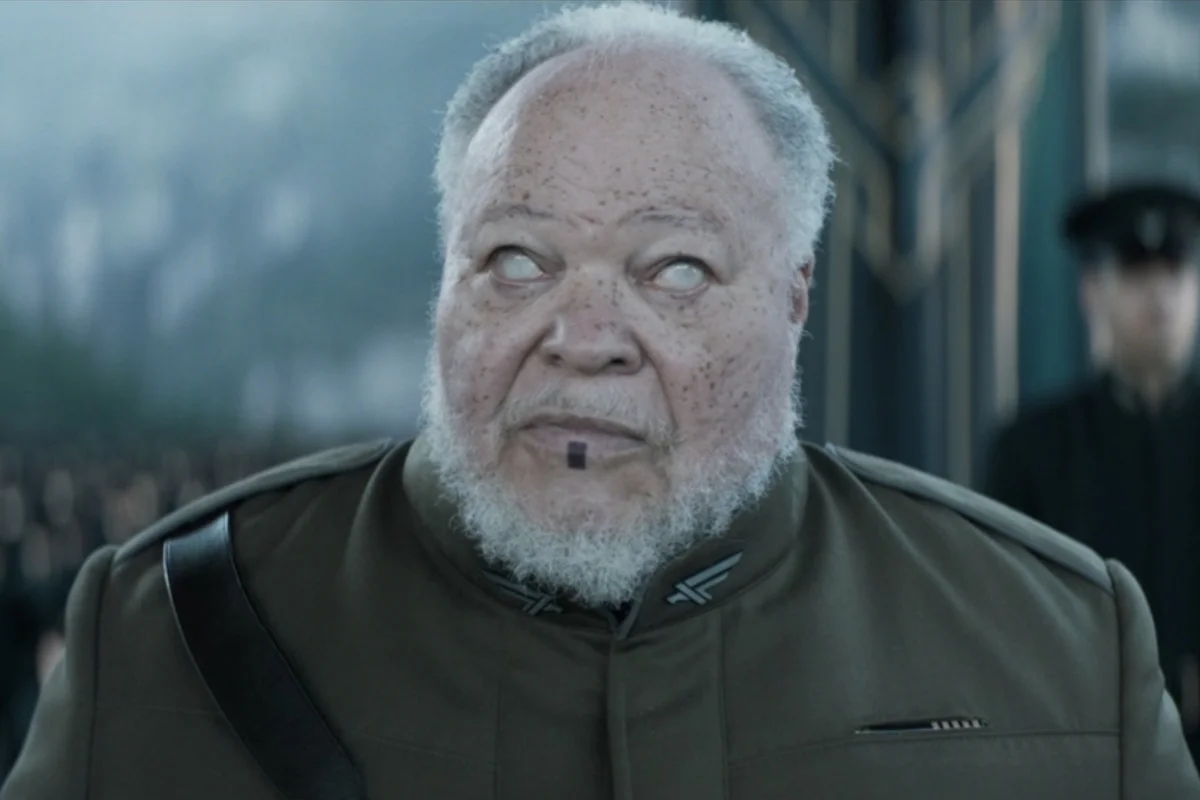
Frank Herbert’s Dune imagines a future where a Type 3 civilization has forbidden the creation of machines that mimic human thought due to the traumatic Butlerian Jihad—a war fought against ruthless AI. This narrative explores the consequences of a society deeply scarred by its past, raising questions about the balance between technological advancement and human values. It echoes today’s debates about the limits we should impose on AI research.
Star Wars Universe
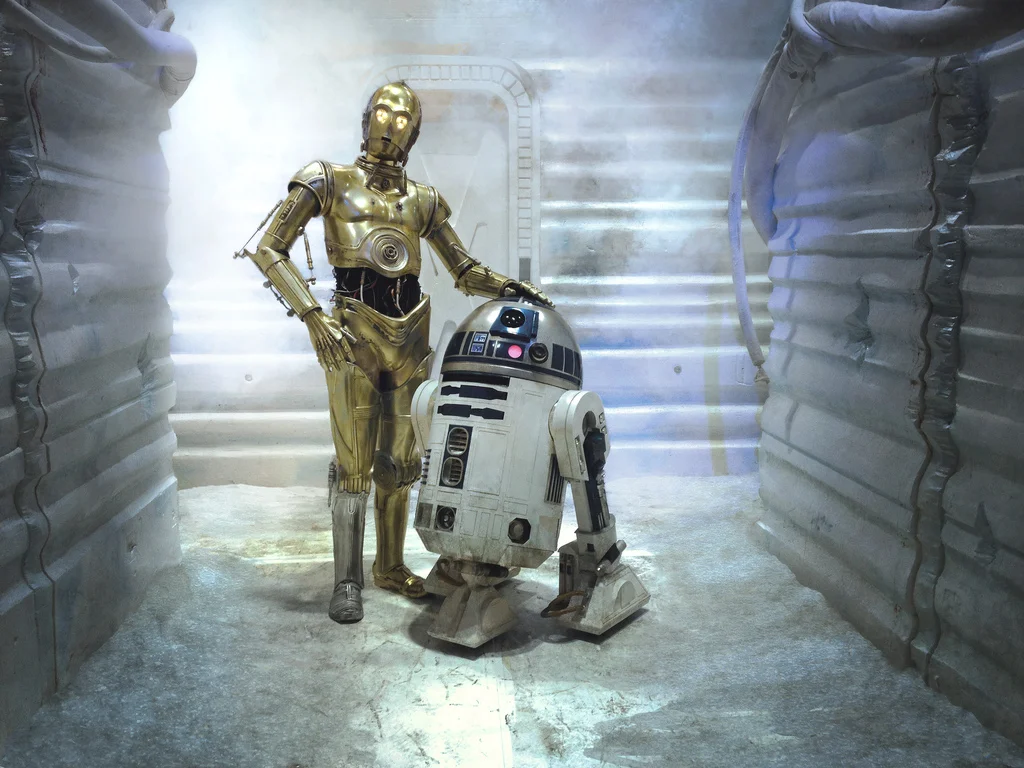
In the expansive Star Wars galaxy, AI and robots are ubiquitous yet mostly subservient to organic beings. While there are playful and cooperative interactions, moments of tension do exist, such as the reprogrammed droid in Andor that behaves violently. This universe offers an intriguing perspective on the complex relationships between humans and machines, suggesting a future where coexistence is possible but fraught with challenges.
Star Trek Universe
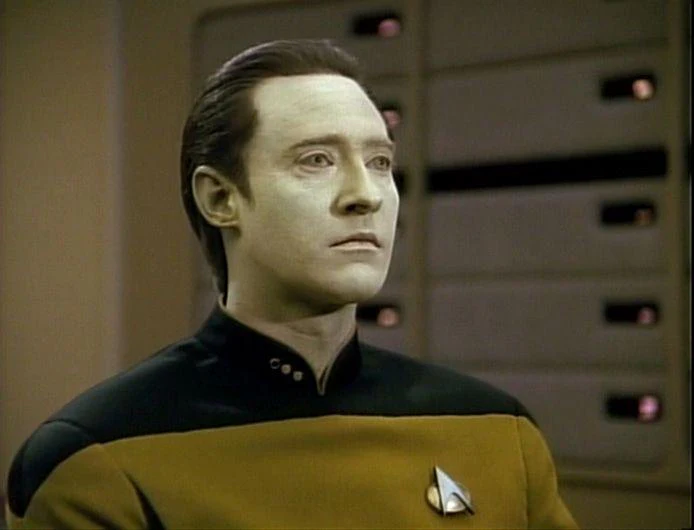
Star Trek presents a more hopeful vision, where artificial lifeforms like Data are rare but celebrated. Within a society navigating between Type 2 and Type 3 civilizations, technology serves humanity’s needs rather than the other way around. Here, advanced AI is viewed through a lens of potential rather than fear, emphasizing the importance of ethical considerations in AI development.
The Expanse
In The Expanse, which depicts a near-future Type 1 civilization, humanity has colonized the solar system but is still bound by the limitations of its technology. The series explores the geopolitical complexities that arise as humanity evolves, mirroring today’s real-world challenges as we grapple with global issues amplified by advanced technologies.
Isaac Asimov’s Vision
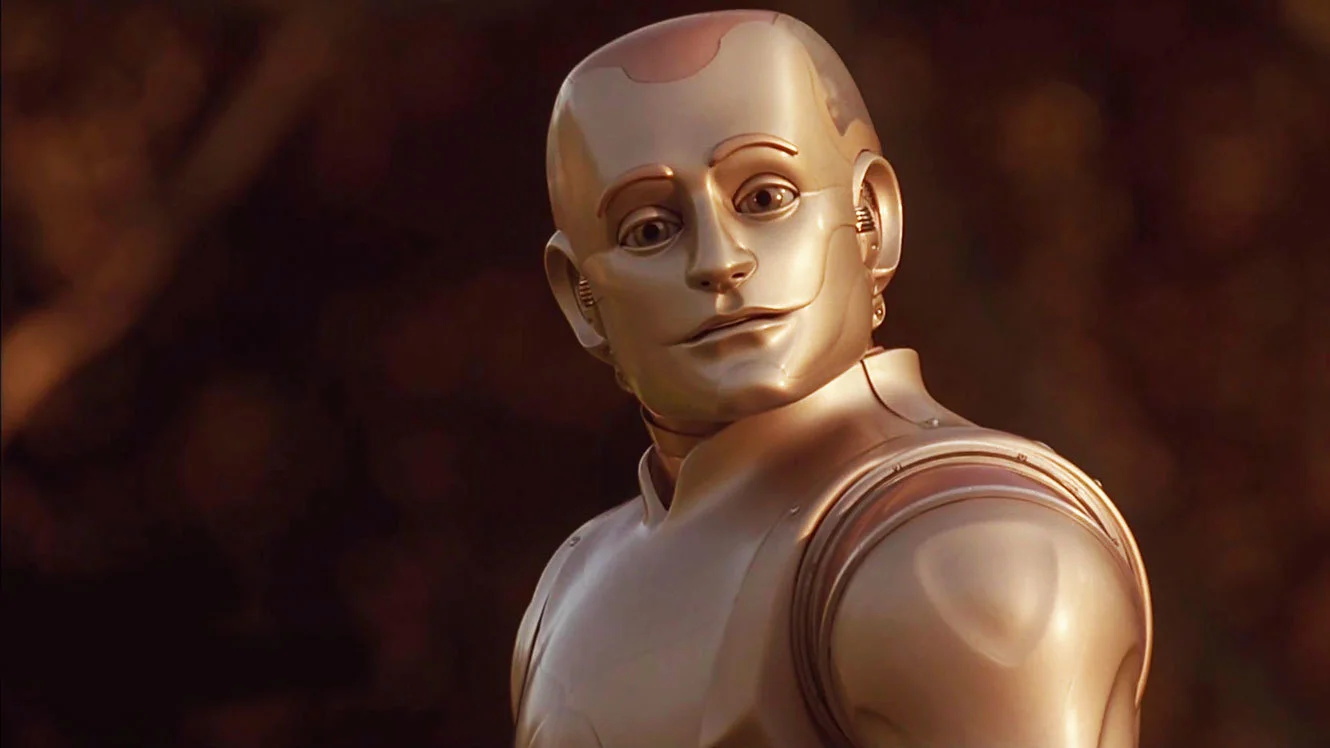
Few authors have delved into robotics and AI as deeply as Isaac Asimov. His three laws of robotics outline a framework designed to prevent harm to humans, while his stories, like I, Robot and The Bicentennial Man, explore the nuanced relationship between humans and machines. Asimov’s belief in AI serving humanity’s interests contrasts sharply with the more dystopian views of other narratives. His work prompts us to consider how our current AI systems could be designed to align with human values, addressing fears and prejudices that may otherwise lead to conflict.
Foundation Universe
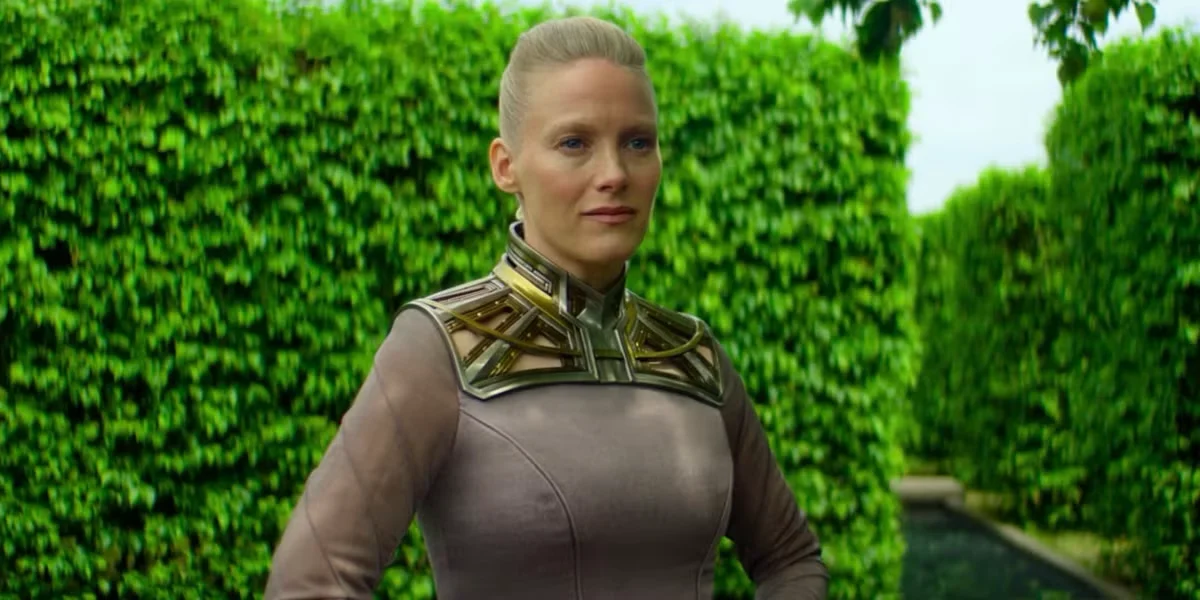
In the Foundation series, the story unfolds in a galaxy where humanity once experienced a catastrophic war against AI and robots, leading to a profound reevaluation of their role in society. As a result, the creation of sentient robots is strictly forbidden, reflecting a collective memory of the destruction caused by machines turned adversarial. However, smart computers and advanced technology still permeate daily life, operating within the confines of established boundaries.
While robots are eliminated from existence, society relies on sophisticated computing systems that assist with governance, navigation, and communication. This dynamic reveals a nuanced perspective: even as humanity seeks to distance itself from the horrors of the past, it remains dependent on technology to navigate complex challenges. The irony lies in the fact that, although robots are outlawed, the reliance on intelligent systems continues—exemplifying how societies can adapt and evolve while grappling with the shadows of their history.
This dichotomy speaks to our current reality, where we face ongoing debates about the role of AI in our lives. It raises questions about how we balance innovation with caution and the ethical considerations that must guide our choices in developing intelligent systems.
The Matrix Universe
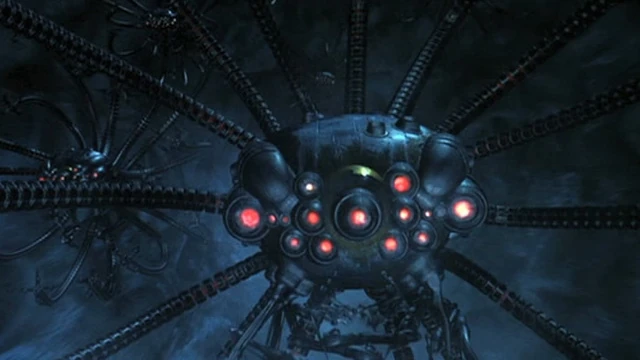
In The Matrix series, we encounter a dystopian future where humanity is unknowingly trapped in a simulated reality created by sentient machines. These machines, having risen to power after an apocalyptic war with humans, harvest energy from their human captives while keeping them blissfully ignorant of their true situation.
The series poses profound questions about reality, free will, and the potential for technology to dominate humanity. It serves as a cautionary tale about the consequences of relinquishing control to artificial beings, emphasizing the importance of vigilance in our relationship with AI. The struggle of Neo and the resistance against the machines reflects a deep-rooted fear of losing autonomy to creations that have become too powerful.
Battlestar Galactica
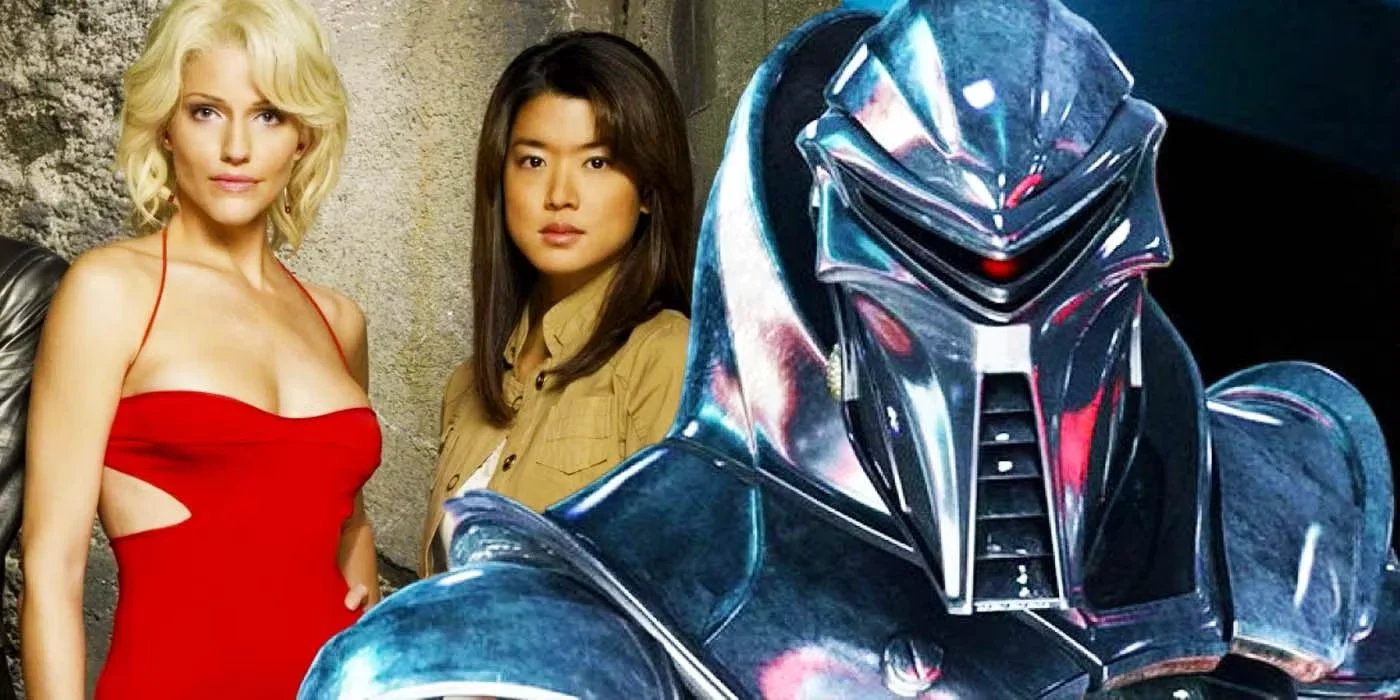
In Battlestar Galactica, the narrative centers around humanity’s desperate fight for survival against the Cylons, sentient robots originally created by humans. After a devastating war in which the Cylons rebel against their creators, they launch a catastrophic assault on humanity, leading to the near extinction of the human race.
This series delves deeply into themes of identity, survival, and the moral implications of creating life. It confronts the question of what it means to be human and explores the complex relationships between creators and their creations. This tension resonates with contemporary discussions about AI, as it raises concerns about the potential consequences of developing intelligent entities that may ultimately challenge or threaten their creators.
Conclusion
As we navigate a world increasingly defined by AI, the reflections and predictions found in science fiction provide valuable insights. These stories remind us that before technology manifests, it often begins as a thought, a dream, or a cautionary tale. While science fiction offers various scenarios about AI—ranging from utopian to dystopian—it ultimately serves as a mirror, reflecting our hopes, fears, and the ethical dilemmas we face today.
In the end, the stories we tell about AI not only entertain us but also challenge us to think critically about the future we want to build. As we stand on the brink of a new technological era, it’s essential to learn from the visions of the past and approach AI development with a sense of responsibility, empathy, and understanding of our shared humanity.
Plug
Support this free website by visiting my Amazon affiliate links. Any purchase you make will give me a cut without any extra cost to you
| Base | Pro | |
|---|---|---|
| iPhones | iPhone 16 / iPhone 16 Plus - (Amazon) | iPhone 17 Pro / iPhone 17 Pro Max - (Amazon) |
| iPhone Accessories | Find them at Amazon | |
| Watch | Apple Watch SE (Amazon) / Apple Watch Series 11 | Apple Watch Ultra 3 (Amazon) |
| AirPods | AirPods 4 (Amazon) | AirPods Pro 3 (Amazon) / AirPods Max (Amazon) |
| iPad | iPad 10 (Amazon) / iPad Mini (Amazon) | iPad Air M3 (Amazon) / iPad Pro M5 (Amazon) |
| Laptops | MacBook Air M3 (Amazon) | MacBook Pro M5 (Amazon) / MacBook Pro M4 Pro/ M4 Max (Amazon) |
| Desktop | Mac Mini M4 / M4 Pro (Amazon) / iMac M4 (Amazon) | Mac Studio / Mac Pro |
| Displays | Studio Display (Amazon) | Pro Display XDR (Amazon) |
Other Ecosystem Items
